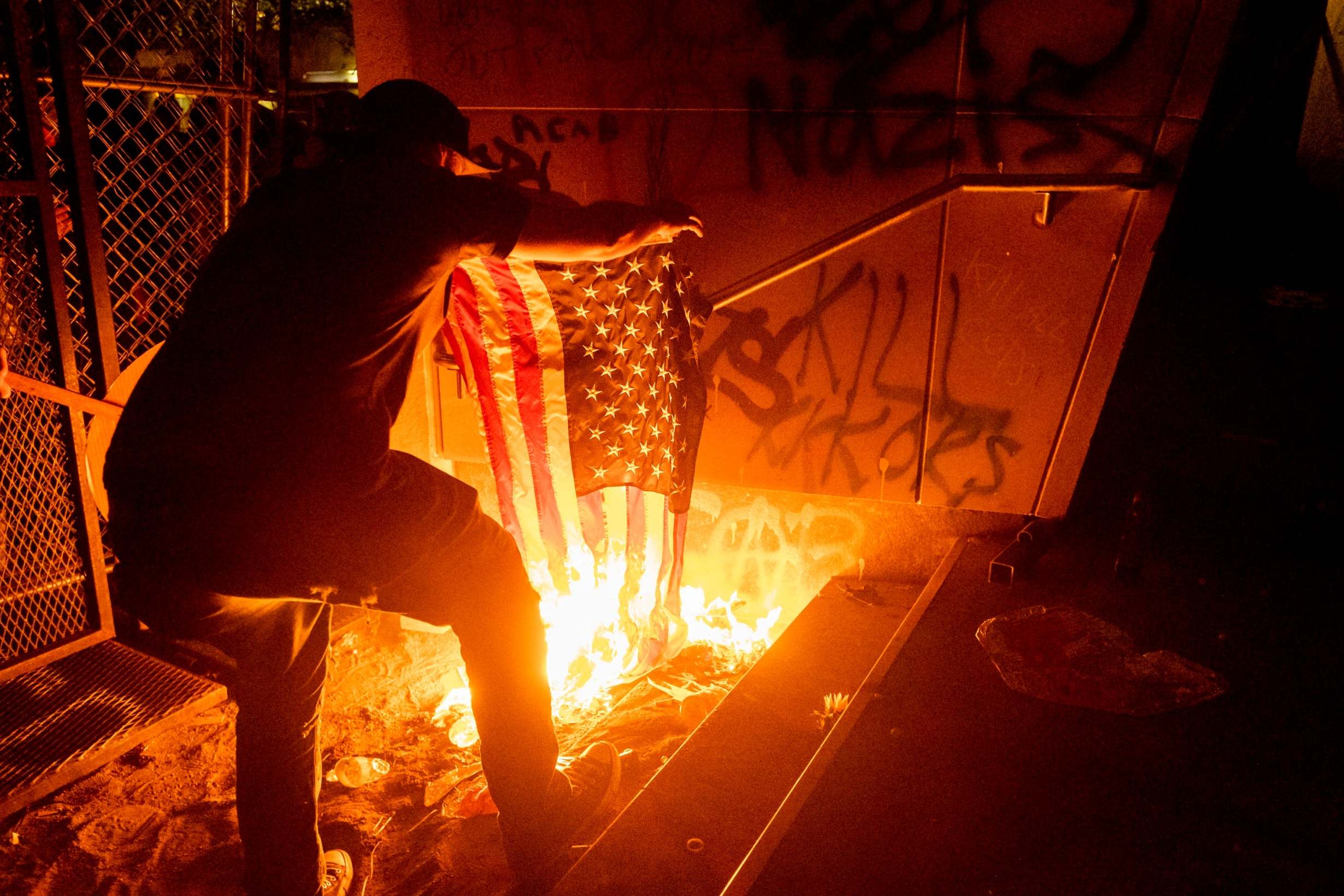FBI agents infiltrated racial justice protests in Portland, report says
Federal agents stood shoulder to shoulder with protesters, documenting the demonstration

Your support helps us to tell the story
From reproductive rights to climate change to Big Tech, The Independent is on the ground when the story is developing. Whether it's investigating the financials of Elon Musk's pro-Trump PAC or producing our latest documentary, 'The A Word', which shines a light on the American women fighting for reproductive rights, we know how important it is to parse out the facts from the messaging.
At such a critical moment in US history, we need reporters on the ground. Your donation allows us to keep sending journalists to speak to both sides of the story.
The Independent is trusted by Americans across the entire political spectrum. And unlike many other quality news outlets, we choose not to lock Americans out of our reporting and analysis with paywalls. We believe quality journalism should be available to everyone, paid for by those who can afford it.
Your support makes all the difference.The Federal Bureau of Investigation (FBI) covertly infiltrated the 2020 Black Lives Matters protests in Portland and continued their surveillance months after the unrest.
Agents of the FBI stood "shoulder to shoulder" with activists, videotaping the demonstration and leading the local police towards potential arrests, according to aNew York Times report.
In the wake of the murder of George Floyd by a police officer in Minneapolis, thousands took to the streets to protest against racial injustice. During the protest, a clash between right-wing and leftist crowds in downtown Portland grew violent, leading to one death.
Authorities have reportedly arrested over 1,000 people during the course of the protests and over 200 people ultimately faced criminal prosecution.
The federal agents were initially deployed in Portland in July 2020 to protect a courthouse after protesters vandalised windows and set things ablaze. However, the agents' role "quickly widened" to cover areas under the jurisdiction of local police.
The prolonged surveillance sparked concerns within the departments, which feared that the teams could be compared to FBI surveillance transgressions in the past.
Kieran L Ramsey, the FBI’s special agent in charge of the Portland field office, told TheTimes that the office was committed to pursuing “violent instigators who exploit legitimate, peaceful protests and engage in violations of federal law".
“At all times, our focus was on those planning or committing significant criminal activity or acts of violence,” Mr Ramsey said.
During the demonstrations, when people concealed their identities and demanded the absence of cameras, infiltrating the crowd in plain clothes may have given the authorities the opportunity to identify those engaging in vandalism, the report said.
In one instance, FBI agents were credited in court records with helping catch a man accused of throwing Molotov cocktails at authorities.
The federal agency continued its operations among Portland’s far-left activists for months even when the movement faded.
Renn Cannon, who was the Portland office’s special agent in charge during the demonstrations, said there were persistent protest-related crimes and tense political dynamics. “I thought a lot about what is allowed under the Constitution. How do you do surveillance effectively, safely and legally? That was something we spent a lot of time on,” Mr Cannon said.
While the agency continued to investigate the far-left groups, some lawmakers have blasted the bureau for failing to detect the 6 January Capitol attacks.
Senator Ron Wyden told the newspaper that there should be a high bar when it comes to agencies surveilling political gatherings.
“The Department of Justice needs to explain to me why it deployed those teams and provide a real record of their activities. What were they there for? Were they there primarily to chill peaceful protesters, or were they there to protect federal property,” he said.
Organisers and civil rights groups claimed that FBI agents recording and following protesters were a form of domestic spying.
“These are all insidious tactics that chill First Amendment expression and erode trust with local officials,” said Bobbin Singh, executive director of the Oregon Justice Resource Centre.
Join our commenting forum
Join thought-provoking conversations, follow other Independent readers and see their replies
Comments